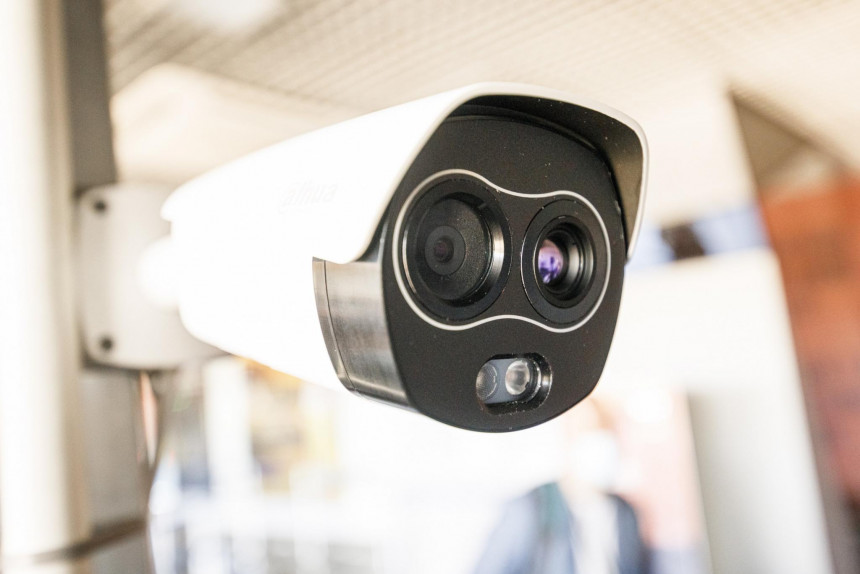Traveling after the pandemic: more control, less privacy

Despite the Covid-19 pandemic, there is still a demand for travel - for some it is a necessity dictated by work, others long for holidays in foreign lands. However, it must be taken into account that, at least in the near future, both business and tourist trips will not be as carefree as before the pandemic.
Traveling under a magnifying glass
In order to contain the pandemic, many countries around the world have various tools in place to find specific people if needed. The information gathered by Kaspersky suggests that in some countries, to visit a restaurant, you must register online with your personal details and contact information, while in others, your name and address must be left with your service provider, for example, on a piece of paper. Kaspersky warns that in this way, personal data is in fact passed on to strangers. "Although the only reason for transferring data to service providers' staff is the need for doctors to access this data if an infection is detected and possible contacts need to be identified, we have observed, for example, unauthorized access to such data by service providers' staff or the police. The inevitable tracing of physical location poses a huge threat to confidentiality that has not been resolved so far. In fact, criminals can access and use this data, for example, in phishing or extortion attacks. In addition, some countries require travelers to install tracking applications that provide continuous, targeted tracking. It is difficult to predict how long such a procedure will be implemented, but in some countries it may remain in force even after a pandemic,” emphasizes Māra Zepa, Kaspersky's public relations consultant in Latvia.
Tracking apps can have many features - they can not only collect and store location data in real time, but also access data on your smartphone, such as your contact list, other apps, and more. It is not yet foreseeable how long such applications could be used and whether they will be used when the pandemic ends. "There may be other requests for this type of tracking in the future, such as criminal surveillance or new health crises. Apps and data will not go anywhere, and we need to keep track of how they will be used later,” said Zepa.
Thieves have it more difficult now
At the same time, the restrictions imposed by the pandemic have made travel safer in some ways, as many countries still require distancing in public places, impose movement restrictions, curfews, making it more difficult for thieves to reach their victims. This also applies to offenders who do not physically rob their victims but use people's inattention and crowded places to spy on the password entered on the smart device to unlock it or to access e-mail, social networks.
Of course, once the restrictions on physical distance are relaxed, travelers will again need to be careful to avoid pickpockets and such "sharp-eyed observers."
The hotel is not your home
The digitalization of the tourism industry, of course, did not start due to the pandemic and is not related to the need to identify possible Covid-19 contacts. Traveling is becoming more and more digital every year (from buying tickets to using hotel room devices), which poses increasing data security risks.
You probably know the phrase "feel at home", which is used by hotels and other accommodation providers. But honestly, you have to understand that it is not your home! As the number of smart devices grows, it's getting harder to keep track of what data each device in your home stores and how to keep them all secure, but in places you don't own, you can't control the Internet of Things devices around you at all. A hotel room with a camera built in a smart TV, smart microclimate control, voice assistant, entertainment offers and other small helpers built into modern accommodations - each of which can compromise privacy or cause security problems if you connect your devices to it. Even an electrical outlet with a USB port for charging your phone can compromise the safety of your device. Hotels and venues are also using the current period, when there are few tourists, to renovate and modernize the premises, which means that they will have more such built-in smart devices in the near future,” warns Kaspersky's public relations consultant.
Tourists, and especially business tourists, are increasingly traveling with a number of devices, such as smartphones, tablets, laptops, e-book readers and the like. Whenever possible, many use Wi-Fi in hotels and restaurants to save money on mobile data. "How many travelers ever wonder who controls the network they're connected to? What kind of data is disclosed when I open a site? It may not be an operator, but a criminal who sneaks through your data stream, collecting sensitive data, or even trying to break into your devices. Encryption not only on the local device, but also on remote connections is as necessary as a plane ticket,” emphasizes M. Zepa.
Self-service stands for printing plane tickets are now publicly available in hotels and other places - usually stands equipped with a tablet or computer. The idea is simple: you need to log in to your e-mail account or elsewhere where the ticket is stored, open it and print it.
“It only takes a few minutes, but… didn’t you forget something? You may forget to log out and clear browsing data while under the stress of checking out. Many of these still retain full access to all data on your device, such as email, documents, and more. This not only compromises your data, but also poses a risk of it being misused by criminals,” says the Kaspersky specialist.